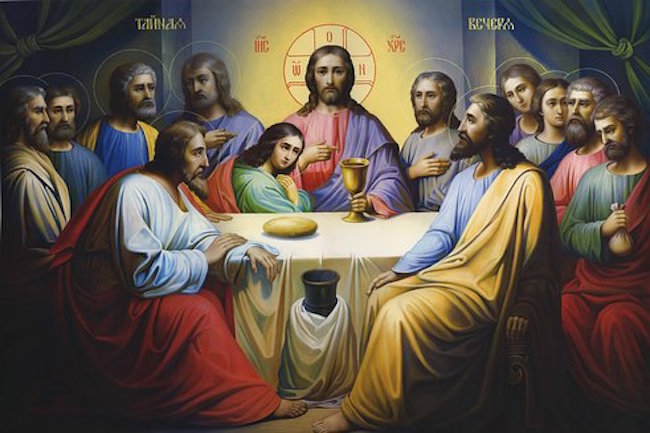10 THINGS YOU SHOULD KNOW ABOUT THE LORD’S SUPPER by Tim Chester for Core Christianity
GNN Note – Before we get started it’s best to clear something up – as we in the South have said all our lives, it’s called “supper” not dinner. Why do you think we call it “supper”?
******
1. We partake of the Lord’s Supper as embodied beings.
The Communion meal involves us in and embraces us in God’s grace. We are not mere observers. We do something. We eat something. We become participants in the story. Again and again John Calvin speaks of the Supper as a banquet in which we feed on Christ. “Our souls are fed by the flesh and blood of Christ,” he says, “in the same way that bread and wine keep and sustain physical life.”[1] The French Confession of Faith of 1559 says, “The body and the blood of Jesus Christ give food and drink to the soul, no less than bread and wine nourish the body.” We are often quick to talk about being fed by the word of God, or we pray that we might be fed by the word as it is preached. In the same way, we can be fed by Communion. As physical food, bread and wine satisfy our bodies with carbohydrates, sugars, and nutrients; as spiritual food, they satisfy our souls with Christ.
2. The Lord’s Supper reminds us we depend on God for sustenance.
Every meal—not just Communion, but including Communion—is a reminder that we are dependent on God as creatures. We are not self-sustaining. Much of our food is grown, processed, distributed, and possibly cooked by other people. We are part of a complex web of relationships upon which we rely day by day. And behind them all is our loving Creator, who generously provides for the needs of his creation. This is why Jesus taught us to pray, “Give us this day our daily bread” (Matt. 6:11). But the Communion meal is special. For Communion is also a recognition that we are dependent on God not just as creatures but also as sinners. We live through the death of his Son. Each mouthful is a reminder that we cannot save ourselves. Just as we rely on daily bread for physical life, so we rely on Jesus for spiritual life. For he is the bread of life.
3. The Lord’s Supper can be a model for our everyday suppers.
What we learn and practice around the Communion table is meant to spill out into the rest of our lives. The grace we receive at Communion is meant to shape the way we relate to other people. One of the main ways we can do that is through meals. The saying of grace at every family meal is energized by the focus on grace at the Communion meal. Every meal becomes an occasion for gratitude. But Communion also helps our meals become occasions for giving. Meals are a powerful expression of welcome and friendship in every culture. So eating with people creates community and proclaims grace.




